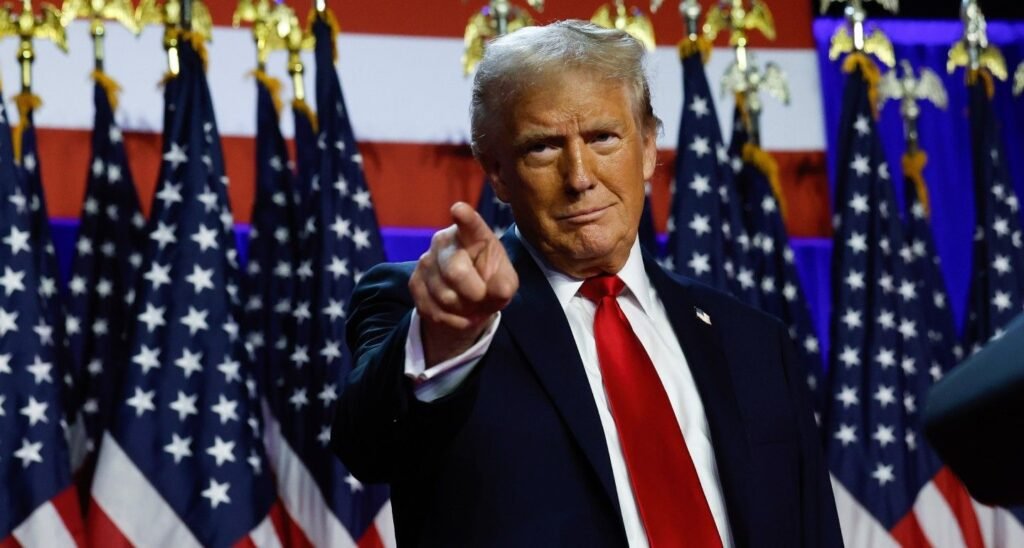Berlin, December 26, 2024 – Former U.S. President Donald Trump’s potential election as the 47th president of the United States has sparked significant discussions about the future of global security, particularly with regard to Russia, Ukraine, and European stability. Many observers believe that Trump’s return to the White House could signal a shift in U.S. foreign policy, especially concerning the ongoing conflict in Ukraine.
Trump has long admired Russian President Vladimir Putin, and there is speculation that, if re-elected, he may reverse the current administration’s stance on Ukraine. Under President Joe Biden, the U.S. has provided substantial material support to Ukraine, including weapons, intelligence, and financing, to counter Russian aggression. Trump’s previous comments suggest he might discontinue this aid, potentially ending U.S. support for Ukraine’s defense.
Trump’s choice of J.D. Vance as vice president, who has expressed opposition to prolonged military involvement, adds weight to the theory that U.S. support for Ukraine could soon be withdrawn. With Republicans now controlling both houses of Congress, further cuts to spending on Democratic priorities, including foreign aid, are likely. As such, it’s anticipated that U.S. financial and military support for Ukraine will diminish significantly.
For Europe, this presents a grave concern. Many European nations have neither the resources nor the political will to fill the gap left by the United States. Without U.S. support, Ukraine could face even greater challenges, and Europe’s security architecture would be significantly weakened.
Putin, however, is not without his own setbacks. The collapse of the Assad regime in Syria and a weakening of Iran’s position in recent months have hindered Russia’s influence in the Middle East. The Syrian opposition’s victory has diminished Iran’s access to Lebanon and the Mediterranean, while Israel’s actions against Iran’s military presence in the region have further isolated Russia. In response, Russia is pulling its forces from key air and naval bases in Syria, signaling a loss of strategic importance in the region.
Despite these losses, Putin could find an opportunity to recover his position through a potential deal with Trump. The incoming administration might broker a larger agreement, where Russia supports U.S.-Israeli efforts to curb Iran’s nuclear ambitions in exchange for a partial diplomatic victory in Ukraine. Alternatively, Trump’s presidency could signal a green light for Israel to take more aggressive action against Iran’s nuclear facilities.
However, such actions could undermine Putin’s aspirations for global influence. If the U.S. and Israel succeed in weakening Iran, it could further cement Russia’s status as a “regional power,” as former U.S. President Barack Obama once described. While China remains a powerful partner for Russia, its perception of Russia’s global importance could diminish significantly.
Another potential outcome is that Trump may force Ukraine into ceasefire negotiations, potentially leading to territorial concessions without sufficient Western security guarantees. Such a scenario would leave NATO’s relevance in doubt and place European security at risk, as Europe would increasingly depend on Ukraine’s stability in the absence of U.S. support.
From Europe’s perspective, Trump’s proposed vision of peace may offer no real solution. Instead of a lasting resolution to the Ukraine conflict, Europe would face constant threats from Russian hybrid warfare and other security challenges. The potential for another refugee crisis, like the one Europe experienced in 2015, could loom large if the situation in Syria deteriorates further.
In light of these uncertainties, Europe must significantly invest in rearmament and security, despite the challenges posed by economic stagnation and a possible trade war. For Europeans, the notion of “America First” rings hollow, as they do not have the luxury of being distanced from the conflict zones in Eastern Europe and the Middle East. As a result, the security risks to Europe are growing, and complacency is no longer an option.
